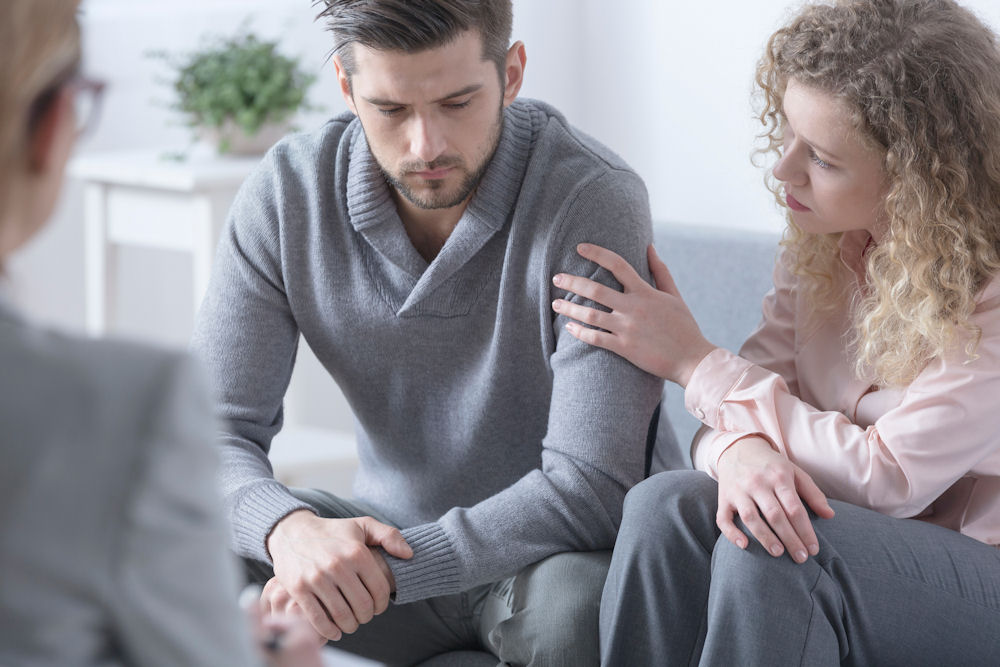Opiate withdrawal can be an incredibly challenging and uncomfortable process. The physical and psychological symptoms can make it difficult for individuals to overcome addiction on their own.
However, gabapentin, offers hope as it has demonstrated promising results in aiding individuals to transition to sobriety safely. Here we will look at how well gabapentin works for treating opiate withdrawal, talk about how safe it is, and explore how it might help with treating addiction.
Table of Contents
ToggleUnderstanding Opiate Withdrawal and the Need for Effective Treatment
Opiates, such as heroin and prescription painkillers, connect with receptors in the brain called opioid receptors. This connection helps relieve pain and makes a person feel very happy. Over time, the body becomes dependent on these drugs, and when they are no longer available, individuals experience a range of withdrawal symptoms.
These symptoms can include nausea, vomiting, muscle aches, anxiety, and insomnia. The severity of withdrawal symptoms can vary depending on the individual’s level of dependence and the type of opiate used.
It is crucial to address opiate withdrawal effectively to ensure a successful recovery. Without proper treatment, individuals may struggle to manage the physical and psychological discomfort, leading to relapse. Gabapentin has emerged as a potential solution to alleviate these symptoms and support individuals in their journey towards sobriety.
The Role of Gabapentin in Opiate Withdrawal Treatment
Gabapentin primarily functions as an anticonvulsant medication employed in the treatment of epilepsy. However, recent studies have shown its effectiveness as an adjunct treatment for opiate withdrawal.
A study published in the Journal of Clinical Psychopharmacology evaluated the use of gabapentin. When used as a supplemental medication for patients undergoing methadone-assisted detoxification. The study found that the addition of gabapentin at a dose of 1600 mg/d helped reduce withdrawal symptoms.
Importantly, researchers have not extensively studied gabapentin as a standalone treatment for opioid withdrawal. The available research indicates its potential, but experts need to conduct further investigations to establish its safety and effectiveness as a standalone treatment option. Therefore, it is crucial for individuals to consult with a healthcare professional before considering gabapentin for opiate withdrawal.
Safety Considerations and Proper Usage of Gabapentin
While gabapentin shows promise in alleviating opiate withdrawal symptoms. It is essential to ensure you’re using the medication safely and under medical supervision. Healthcare professionals should guide the consumption of gabapentin, as it is available only through prescription. Self-medicating with gabapentin without a doctor’s prescription can be dangerous and may lead to adverse effects.
Gabapentin can cause side effects, including dizziness, drowsiness, and coordination problems. It is important to follow the prescribed dosage, as higher doses may result in more severe side effects. Abruptly stopping gabapentin can lead to withdrawal symptoms, so it is crucial to taper off the medication under medical supervision.
Gabapentin as a Supplemental Treatment Option
Although gabapentin might not serve as the primary treatment, it can complement other established methods as a supplemental treatment. Medical professionals may prescribe gabapentin in conjunction with medication-assisted treatment (MAT) to enhance the effectiveness of the overall withdrawal process.
Gabapentin can help manage certain withdrawal symptoms, such as pain and anxiety, allowing individuals to better tolerate the detoxification process. Notably, adjusting the use of gabapentin to suit individual needs and modifying the dosage accordingly is essential. The combination of gabapentin and MAT can provide a comprehensive approach to opiate withdrawal treatment and increase the chances of successful recovery.
The Importance of Medically Assisted Detox for Opiate Withdrawal
Attempting to go through opiate withdrawal alone can be overwhelming and increase the risk of relapse. Medically assisted detoxification programs offer a safe and supportive environment for individuals seeking to overcome opiate addiction.
During a medically assisted detox at Agape Detox Center, healthcare professionals can assess the individual’s specific needs and determine the most suitable treatment plan. This may include the use of medications like gabapentin to manage withdrawal symptoms effectively. These programs offer counseling, therapy, and support services to provide individuals with the tools needed for long-term recovery.
Seeking Help for Opiate Addiction and Withdrawal
If you or someone you know is struggling with opiate addiction, it is crucial to seek professional help. A medically supervised detox program, such as the one offered at Agape Detox Center, can provide the necessary support and guidance to overcome opiate withdrawal safely. By working with experienced medical professionals, individuals can receive personalized treatment plans that may include the use of gabapentin to ease withdrawal symptoms.
Beyond the detoxification process, comprehensive addiction treatment programs can address the underlying causes of addiction and provide individuals with the tools needed for lasting recovery. These programs often incorporate counseling, therapy, support groups, and alternative treatment options to address the physical, emotional, and psychological aspects of addiction.
Remember, you don’t have to face opiate withdrawal alone. Reach out to Agape Detox Center today to start your journey towards a healthier and drug-free life.

Stephanie Robilio is an accomplished Clinical Director at Agape Behavioral Healthcare. With a Master of Social Work degree, LCSW license, and extensive training in Rapid Resolution Therapy under her belt, she brings a wealth of expertise to her role. Her unique combination of education and experience allows her to provide exceptional care to clients and lead her team with confidence. Stephanie’s joy comes from witnessing the moments when her patients creatively connect the dots and bravely move toward reclaiming their power. Her purpose is to help individuals understand their past so they can create a future full of hope, growth, and success. Stephanie attributes a large portion of her success to the supportive culture and strong sense of community fostered by the Agape team.





